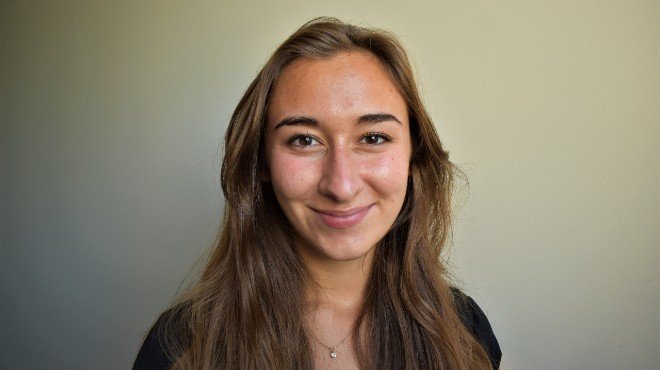
Schulich Leader uses scientific inquiry to contribute to a better future
For 10 years, the Schulich Leader Scholarships program has been creating the next generation of technology innovators by supporting exceptional STEM students. To mark this milestone, Dal caught up with three Schulich Leader alumni to find out what they’re doing now and what the scholarship means to them. In this installment, meet Kate Arpin.
Science isn’t just about advancing knowledge. It’s also about acting with empathy and making the world a better place.
That’s the credo that drives Kate Arpin (BSc’21), who is now pursuing her master’s degree at the University of British Columbia’s Ecological and Conservation Genomics Lab.
Doing what you can every day
“You don’t have to single-handedly save the world. It’s important to contribute to a field you think will have great implications for benefiting the future,” Arpin says. “But doing what you can every day, being kind, open-minded, helping others where you can — I think that’s equally important.”
Arpin is one of Dalhousie’s Schulich Leaders, exceptional students who receive full four-year scholarships to pursue undergraduate studies in science, technology, engineering or math at one of 20 partner universities in Canada. The program looks for students who are both promising scholars and innovative, entrepreneurial-minded leaders. Arpin thinks she was nominated in part because in Grade 12 she helped lead a new water quality study in her hometown of Uxbridge, Ontario. It looked at the concentrations of chemicals in water fleas, considered an indicator species.
Schulich Leaders program provided freedom
By allowing her to focus on her studies without financial worry, the Schulich Leader Scholarship program freed Arpin to take advantage of exciting research opportunities that may not have otherwise been possible. She studied invasive species in kelp beds by SCUBA diving among the wild islands of Nova Scotia’s Eastern Shore and worked on deep-sea image analysis, both under the supervision of Dr. Anna Metaxas.
Then, “Everything came together for me to go on a two-week long research cruise with NOAA [the US-based National Oceanic and Atmospheric Administration] and work with the remote-operated vehicles there in collecting samples and getting new imagery and video of the bottom of the ocean that we’d never seen before. So that was incredible.”
Her current research focuses on the American Pika, a hamster-like creature that lives in rocky environments. “They have quite a narrow thermal tolerance, so they’re expected to be pretty severely affected by changing temperatures, especially because they live at high elevations and there’s really nowhere else colder to go,” she says. At the Ecological and Conservation Genomics Lab, she is working on identifying a set of single-point mutations in the pika genome, through DNA collected non-invasively. In other words, through samples like feces, as opposed to, say, blood. The results, she explains, should “provide insight into the connectivity of pika populations in British Columbia and Alberta, and also provide a bit of insight into which pika populations might do better in a changing climate.”
Welcomed in her discipline
Asked if she has encountered any obstacles as a woman in STEM, Arpin says she has always felt welcomed in her discipline. “A lot of my supervisors have been female and really embody that change and have provided a great inspiration for me.”
She adds, “I do think that there will be a big change in the culture of how things are done in the future. I’m optimistic.”
For more information about Schulich Leader Scholarships, visit: schulichleaders10.com. If you’re a company looking to hire Canada’s top STEM talent, please contact us here.